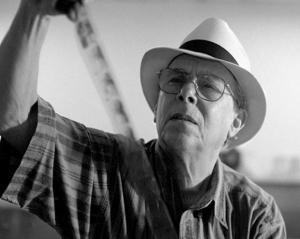Espinosa was known for his prominent role during what critics dubbed the golden decade of Cuban cinema, 1959-69. He will be remembered for his leadership in building up many of the country’s important cultural institutions during that time.
Concordia granted Espinosa an honorary doctorate in 2002.
Born in Havana in 1926, Espinosa shot dozens of short- and feature-length films during his half-century career.
While attending the prestigious film school Centro Sperimentale di Cinematografia in the early 1950s, he became fascinated with Italian neorealism — a style that would influence his filmmaking for years to come. Upon graduation, he returned home to co-direct El Megano (1955), a documentary short. He later described the film as the first attempt at neorealism in Cuba.
Espinosa became a political activist after El Megano was censored by the Fulgencio Batista dictatorship. In subsequent years, he shot various propaganda videos in support of the Cuban revolution.
During the 1960s, he became one of the founding members of the Instituto Cubano de las Artas e Industrias. Acting as director of artistic programming for many years, he continued to write and direct films while also serving as a consultant on many prominent Cuban films.
A former vice-minister in the Cuban Ministry of Culture, he also directed the Havana International Latin American Film Festival from 1982 to 1990.
“Julio Garcia Espinosa is a powerful creative force of this community, an independent thinker and an inspiration to young filmmakers throughout Latin America,” Rosanna Maule, associate professor at Concordia’s Mel Hoppenheim School of Cinema, said during his honorary degree citation.
By bringing the country’s history and culture to life on the big screen, his films touched average viewers and cineastes alike. His 1967 hit comedy, Las aventuras de Juan Quin Quin, was entered into the 5th Moscow International Film Festival.
#CUalumni
Related links
 Julio Garcia Espinosa, LLD 02
Julio Garcia Espinosa, LLD 02